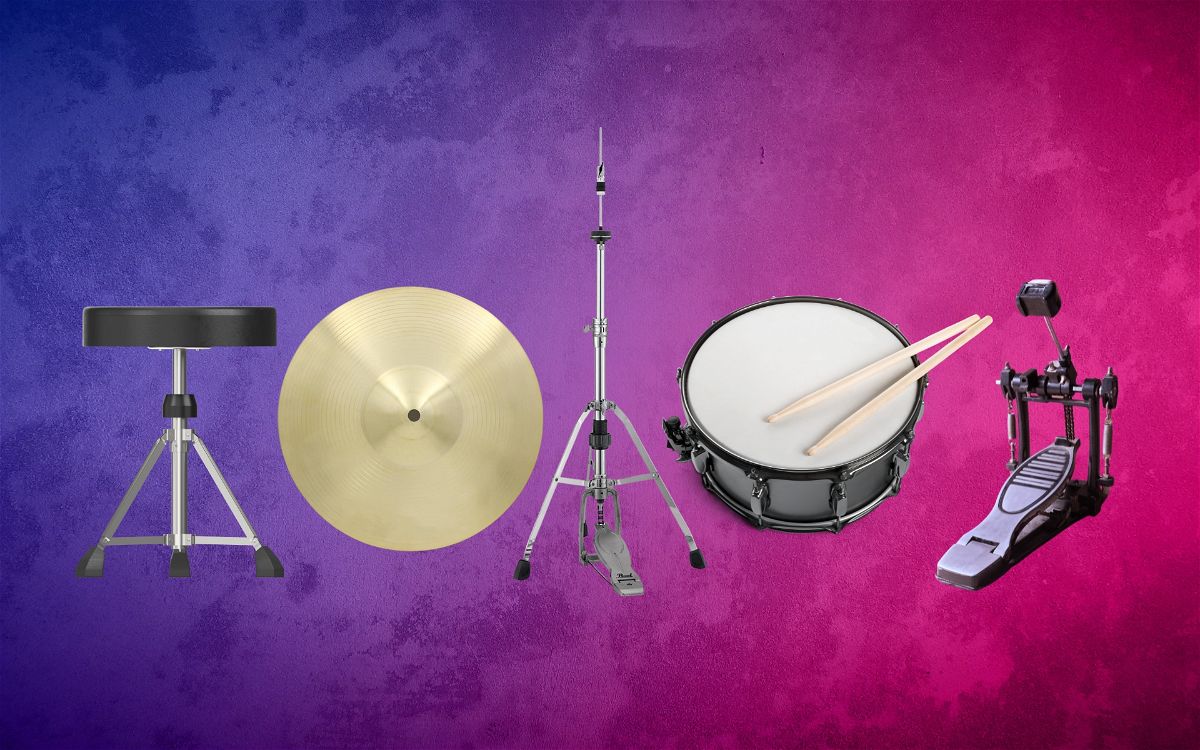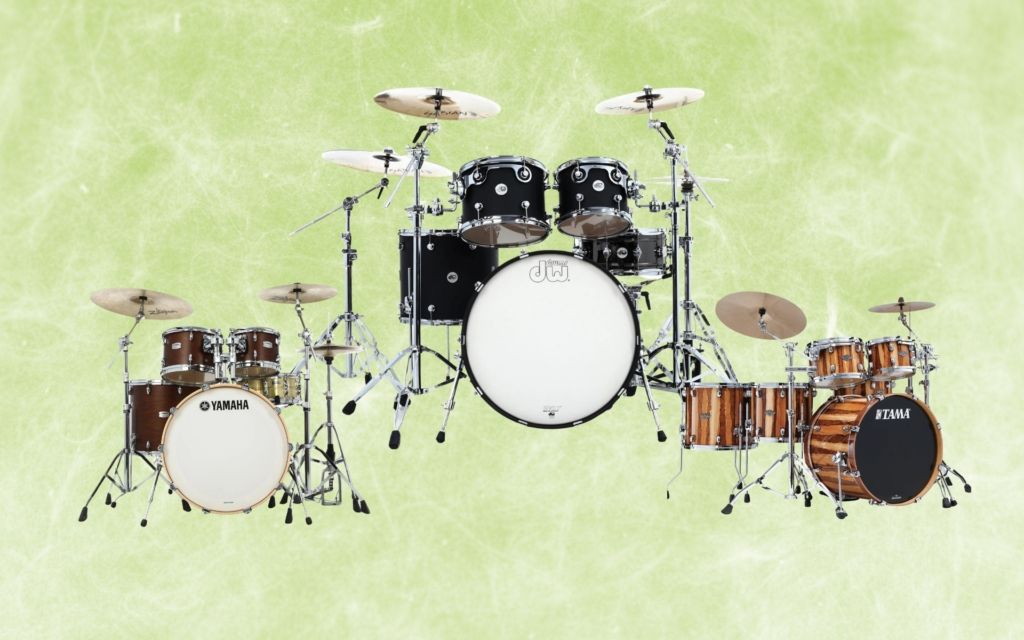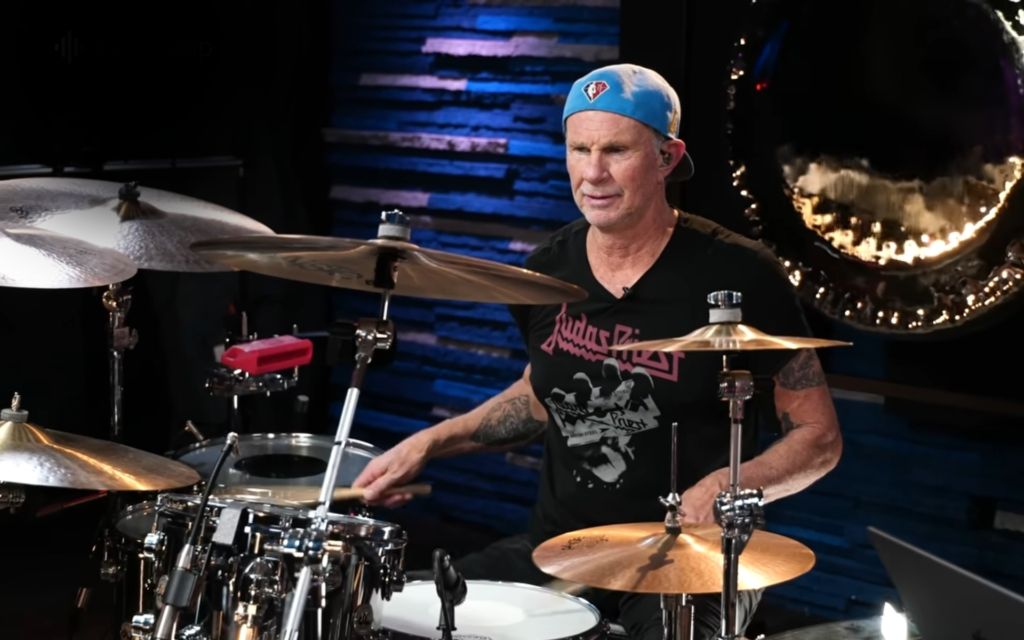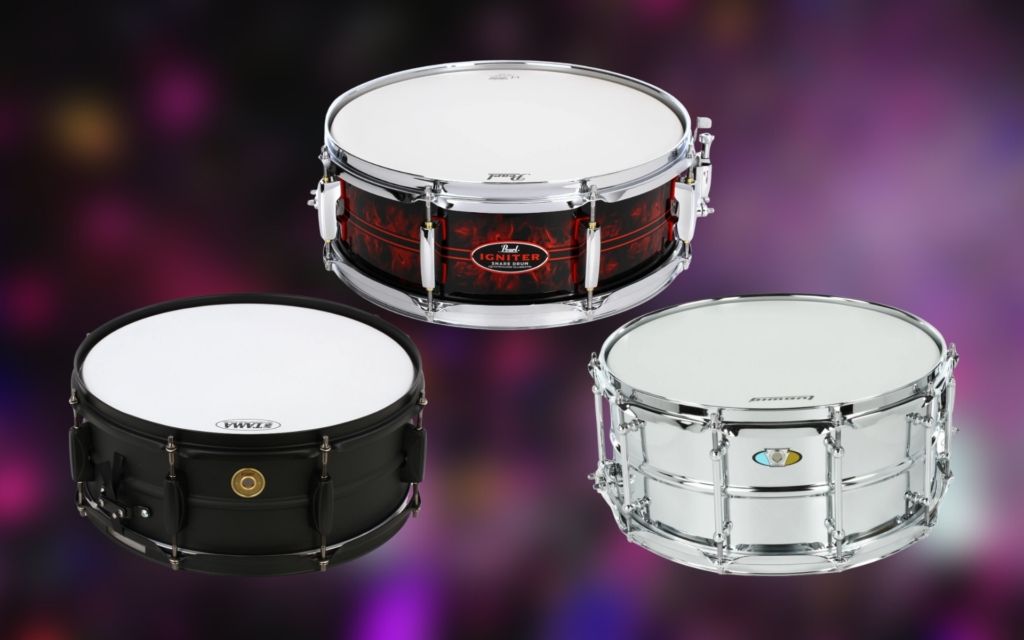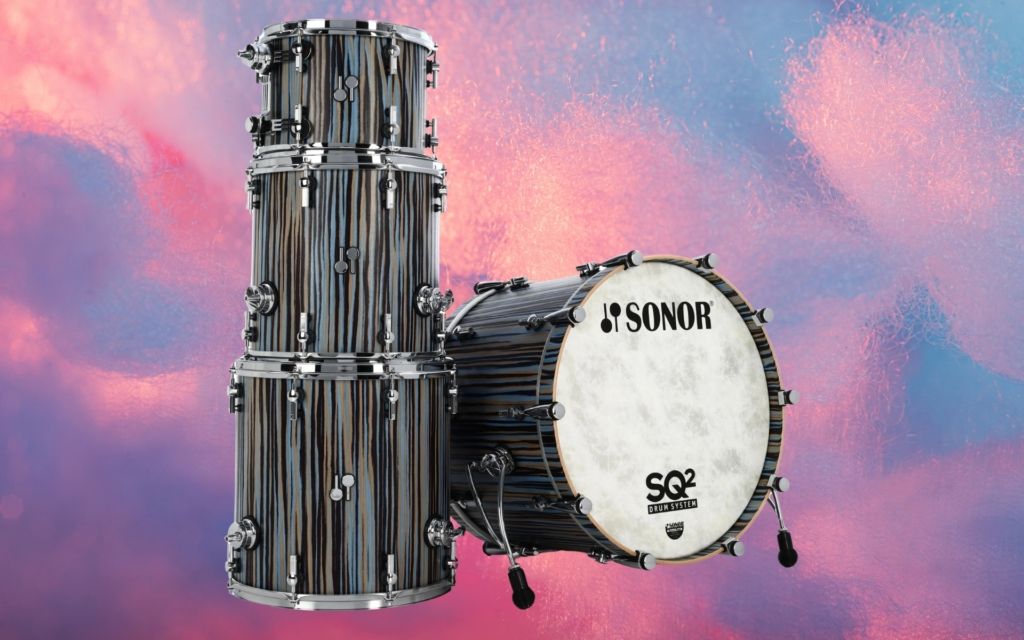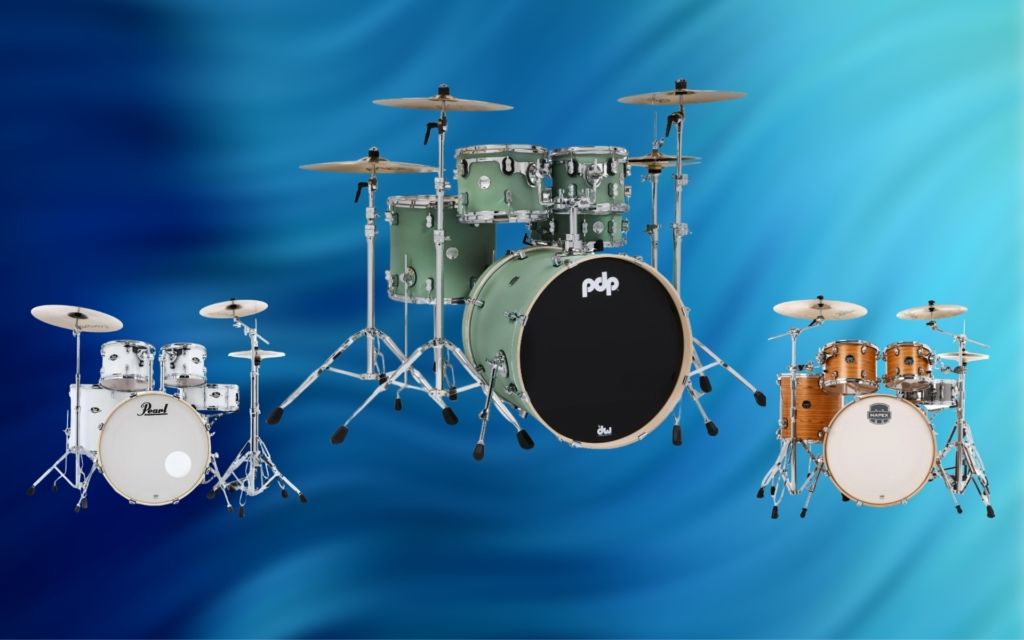If you’re a gigging drummer, the term breakables will come up fairly often. When I first started playing at festivals, I had no idea what this meant, and not knowing that led to a few awkward issues on stage.
So, here’s a quick guide on what the term breakables means in drumming. I’ll also give a list of drum parts that are regularly considered breakables.
Contents
What are Breakables in Drumming?
‘Breakables’ refers to the drumming equipment that drummers bring to a show and prefer not to share with others when using a communal drum kit at a gig. These typically include cymbals, a snare drum, and kick drum pedals.
Drum parts are quite durable, so it’s not about fragility. At music events, multiple bands use the same drum kit, and drummers bring their unique breakables to swap out between sets, ensuring their gear stays exclusive and ready to rock.
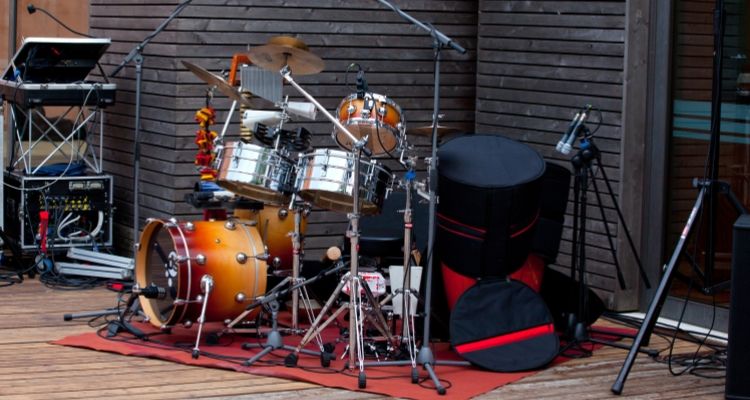
Different bands will play on stage, and the same ‘house’ drum kit will be there for all the drummers to play, with the microphones and kit set up throughout the day.
Drummers need to bring their own breakables to swap out in between sets.
Why Drummers Use Breakables Instead of Sharing
- Protection and Exclusivity: Using breakables protects a drummer’s equipment from potential damage. If you allow other drummers to play your personal gear, that can potentially lead to damage of your cherished instruments.
- Personal Sound and Style: Drummers have distinct preferences for the type of cymbals, snare drums, and pedals they like to use, which all contribute to a drummer’s unique sound and playing feel.
- Comfort and Familiarity: Drummers are most comfortable and perform at their best when using familiar equipment. Using breakables provides this familiarity and consistency.
List of Breakables for Drummers
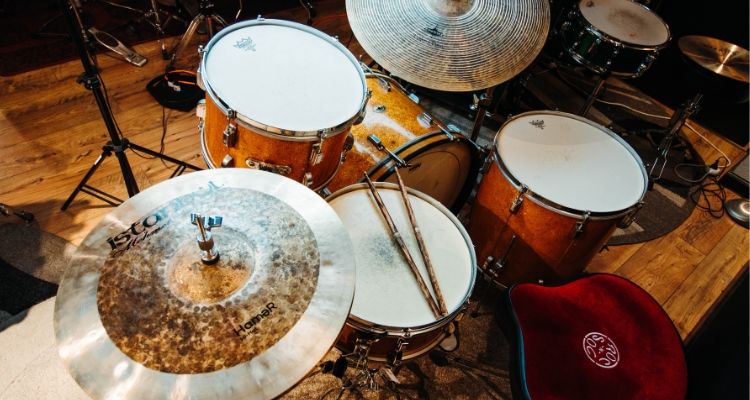
Cymbals
Cymbals are the biggest and most obvious breakable in the drumming world. No one wants to share cymbals. They’re expensive, and you never know how hard another drummer is going to hit them.
Bad cymbal technique also leads to cracks, and it just takes one drummer to crack your $600 ride cymbal. So, when you play a gig with a shared kit, you should always bring your own cymbals and cymbal bag.
From my experience, you should only share cymbals with drummers that you personally know. It’s just too risky, otherwise.
Drumsticks
The next breakable that is non-negotiable would be drumsticks. Every drummer plays with their own sticks, and it’s highly unlikely to meet a drummer that will let you use theirs.
Drumsticks are highly personal. You may love to use 5As, while every other drumming playing could prefer 2Bs. So, you need to have your own stick bag with a set of 5A sticks to use.
I would say that drumsticks are the one thing on this list that are true to the work breakable, as they can actually break quite easily.
Bass Drum Pedal
Up next is a bass drum pedal. This one is debatable on whether it can be considered a breakable. It’s not so much a thing of drummers not wanting you to use their bass drum pedals.
It’s more a thing of every drummer having very specific kick pedal configuration settings. You’ll feel a lot more comfortable playing your own kick drum pedal than you will playing someone else’s.
So, you’ll have the most comfortable performance if you bring your own bass pedal to the gig.
Snare Drum
A snare drum is something else that is often considered as a breakable. There are two reasons for this.
Firstly, the snare drums on house drum kits are never good. I’ve played too many gigs in my life where I didn’t bring my own snare drum and the provided snare sounded terrible.
The second reason is that every drummer has a preferred snare drum sound. If you’re sharing a kit on stage, it’s best to avoid the situation where drummers sit and alter the sound of the snare in between sets.
It’s just a lot easier to bring your own snare drum.
Drum Throne
A drum throne is another highly personalized piece of drum gear. However, drum thrones have been provided in most of the gigs I’ve played where the drum kit has been shared.
There have just been a few where the house kit didn’t have, so you should be prepared to bring your own drum stool if need be.
I’ve also played a few gigs where it would have been more comfortable to sit on a plastic chair instead of the thrones that they provided, so that’s another good reason to bring your own throne.
Hi-Hat Stand
The final breakable to mention is a hi-hat stand. These are typically provided with a house kit, but you may run into a few situations where there isn’t one.
Hi-hat stands can also be highly personalized, so they have the same reason as a bass drum pedal to bring your own.
I regularly play gigs with a double bass drum pedal, so I need a two-legged hi-hat stand to have the most comfortable setup. It’s not often that you’ll get a two-legged stand on a house kit, so I always bring my own stand anyway.
If you don’t want to bring your own hi-hat stand, you should at least bring your own hi hat clutch. There have been some real horror stories about clutches on house kits, so I advise every drummer to always keep a clutch in their drumstick bag.
Things to Keep in Mind When Sharing a Drum Kit on Stage
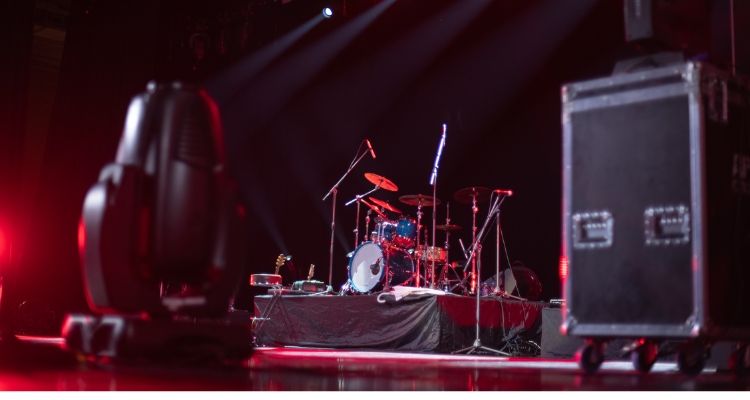
Know What You’re Getting on Stage
I highly recommend contacting an event organizer to know exactly what drum kit is being provided on stage. If you’re not taking your own kit, you need to know what’s there so that you know which breakables to bring.
As I said earlier, a lot of breakables aren’t too necessary. You can save a lot of time by not bringing a hi-hat stand or drum throne.
Try to Communicate with Other Drummers Beforehand
It’s also a good idea to contact the drummers from the other bands that you’re sharing the kit with to see what they’re bringing.
You’ll find that most drummers are happy to share things like hi-hat stands, drum thrones, and even snare drums.
So, establishing what you’re happy to share will give you an idea on what you must bring. The fewer breakables you bring, the easier it will be to transport your gear to the gig.
Just never ask a drummer you don’t know if you can use their cymbals! It’s better to just avoid that conversation.
Conclusion
The term breakables has been adopted by drummers and it refers to pieces of gear that drummers don’t want to share with each other if they’re using the same drum kit to play a gig.
It’s a good idea to keep a checklist of breakables if you play gigs regularly. By doing that, you’ll always be prepared when getting your gear ready.
After contacting the organizers of the gig and the other drummers that are playing, you’ll know exactly what you need to bring. If you play in a touring band, these breakables are what you should always have ready for every gig.
Remember that your own gear will always feel better to play with, so it’s often worth bring all these breakables with.

